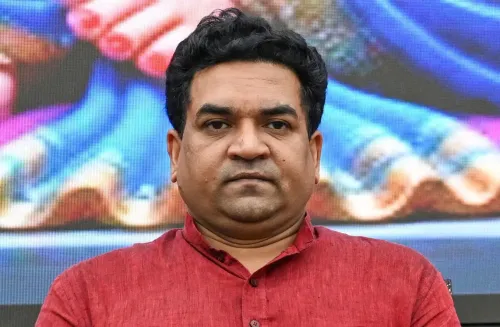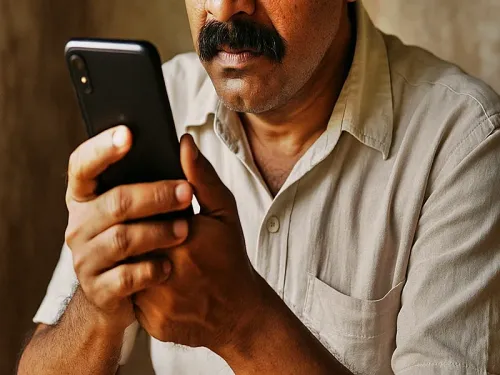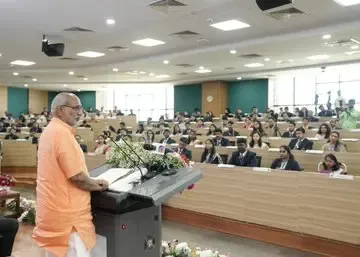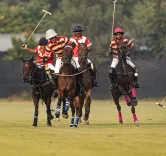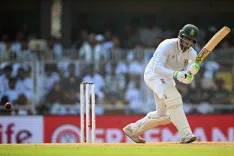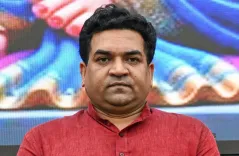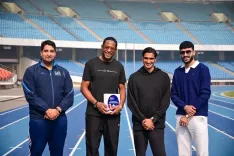Is India a Hindu Rashtra? Mohan Bhagwat Emphasizes Civilizational Identity at Lucknow Event
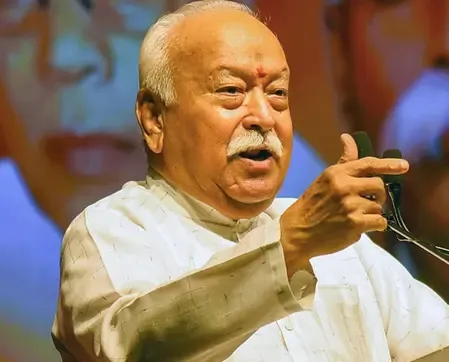
Synopsis
Key Takeaways
- Mohan Bhagwat asserts India as a 'Hindu Rashtra'.
- The teachings of the Gita provide timeless insights.
- Society struggles with moral and ethical challenges.
- Historical invasions have shaped India's cultural landscape.
- Citizens are encouraged to embrace dharma and duty.
New Delhi, Nov 23 (NationPress) RSS Chief Mohan Bhagwat made a series of impactful statements regarding spirituality, national identity, and the essence of Indian civilization during the Divya Geeta Prerna Utsav in Lucknow on Sunday. The event was attended by Uttar Pradesh Chief Minister Yogi Adityanath.
In his address, Bhagwat highlighted that the teachings of the Gita provide valuable insights applicable in any era and situation.
“To truly grasp the Gita, one must read it in its original text and delve into its meaning—only then does everything become apparent. A unique aspect of the Gita is its ability to offer new perspectives with each reflection, relevant to one's current life circumstances,” he stated.
Referencing the scripture, he pointed out that Bhagwan Krishna encourages people not to flee from their challenges but to confront them courageously.
Bhagwat expressed his concerns that, despite increasing material wealth, society is plagued by a “lack of morality, peace, and fulfillment.”
He remarked that many individuals feel they're progressing in life yet still sense they are on the wrong path. The correct path, he emphasized, is rooted in India’s civilizational values.
“India’s traditions once brought peace and unity to the globe,” he noted.
Reflecting on India's past, the RSS chief asserted that the nation was once a “Vishwaguru,” but centuries of invasions led to the destruction of temples, forced conversions, and a state of subjugation.
“Those invasion days are behind us. Now, we’ve raised the flag over the Ram Temple,” he proclaimed, affirming that India's cultural identity has endured despite centuries of adversity.
Identifying India as a “Hindu society and a Hindu Rashtra,” Bhagwat called upon citizens to adopt principles of dharma, duty, service, and sacrifice. “The core of all traditions and worldly knowledge is encapsulated by Bhagwan Vyas in the 700 shlokas of the Gita,” he commented.
He also drew comparisons between historical conflicts and modern global issues. “Wars fought a millennium ago are mirrored in today's world. The nature of crimes and greed remains unchanged,” he observed.
Honoring freedom fighters, Bhagwat remarked that heroes like the martyrs of 1857 and Chandrashekhar Azad did not gain anything materially, yet their sacrifices continue to motivate future generations.
“They did not witness victory in their lifetime, but their legacies illuminate our path even today,” he concluded.

